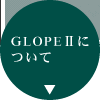予定表 -詳細情報-
| 件名 | LS 尾崎敦司氏 |
| 開始日時 | 2012年 5月 8日 (火曜日) 12時15分 (GMT+09:00) |
| 終了日時 | 2012年 5月 8日 (火曜日) 12時50分 (GMT+09:00) |
| 場所 | 1号館401号室 |
| 詳細 | GLOPE II ランチタイムセミナー 【時間】12:15〜12:50 【場所】1号館401教室 【報告者】尾崎敦司氏(早稲田大学政治学研究科) 【タイトル】Screening for Personal Vote-Earning Attributes in European Parliament Elections in the Run-up to National Elections: Case of Italy in the SixthTerm (2004-2009) of the European Parliament 【概要】 Why do some Members of the European Parliament (MEPs) run for national election even during the mandate while others do not? I investigated this research topic using an original dataset on MEPs in the sixth term (2004-2009) from Italy, where national elections were held in 2006. Based on the theory of electoral systems, I argue that the open-list proportional representation formula clearly shows which candidates have personal vote-earning attributes. I show that MEPs who demonstrate better personal vote-earning attributes in the European Parliament election are more likely to run for the upcoming national election. *The talk will be given in Japanese. |
| カテゴリー | 政治経済学基礎セミナー・ランチタイムセミナー |








